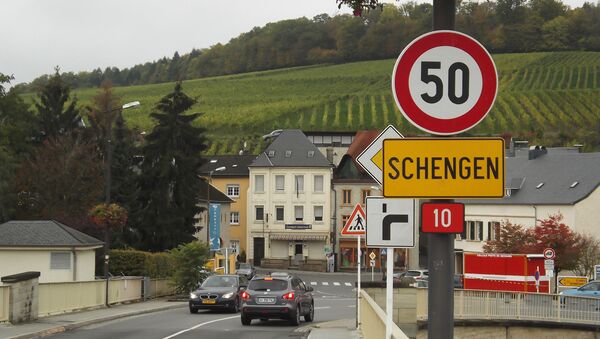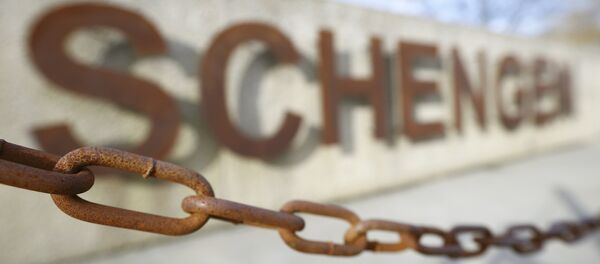BRUSSELS (Sputnik) – The full restoration of border controls within the Schengen area will entail annual financial losses up to 18 billion euros ($19.7 billion) for the countries of the passport-free zone, the European Commission (EC) said Friday.
"Temporary border controls not only hamper the free movement of persons, they also come with significant economic costs. The Commission has estimated that a full re-establishment of border controls within the Schengen area would generate immediate direct costs of between €5 and €18 billion annually (or 0.05%-0.13% of GDP)," the EU body said in a roadmap aimed at returning to the normal functioning of the 26-member free movement zone.
The expenses will be concentrated in certain regions, but will inevitably have an impact on the entire EU economy, the commission stressed.
A number of European states, including Austria and Germany, have recently suspended the Schengen Agreement and toughened their border checks, introducing special procedures on their borders. The measures aim to curb the influx of refugees.
The roadmap stipulates flexible approach to regulation of border controls within the Schengen Area, securing the EU external borders, immediate support for Greece and stopping the "wave-through" approach to those who indicate an interest in applying for asylum.
"The objective would be to lift all internal border controls by December, so that there can be a return to a normally functioning Schengen area by the end of 2016," the commission outlined.
Since September 2015, eight countries in the Schengen zone have reintroduced border checks.






